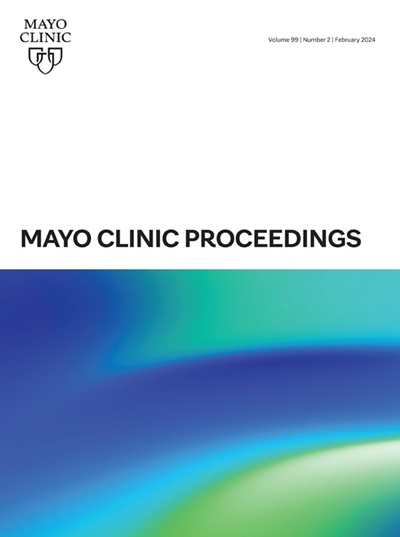Safety of Acamprosate in Patients With Alcohol-Associated Liver Disease: A Single-Arm Phase 2 Trial
IF 6.7
2区 医学
Q1 MEDICINE, GENERAL & INTERNAL
引用次数: 0
Abstract
Objective
To investigate the safety of acamprosate, a Food and Drug Administration–approved medication for alcohol use disorder, in patients with alcohol-associated liver disease.
Methods
In this phase 2 open-label study, 12 patients with alcohol use disorder and alcohol-associated liver disease were enrolled between September 2020 and May 2022. Participants received acamprosate for 12 weeks and were followed up to 24 weeks. The primary end point was drug safety profile; secondary end points included alcohol craving, measured by the Penn Alcohol Craving Scale, and relapse. All safety data were reviewed by the Data and Safety Monitoring Board.
Results
Patients were enrolled sequentially with Model for End-Stage Liver Disease–Sodium score below 20 (n=6) and 20 and above (n=6). Median age was 50 years, and 7 (58.3%) were female. Seven patients confirmed initiation of acamprosate, whereas 5 were lost to follow-up. There were no significant adverse events; only 1 patient reported pruritus, and no patients demonstrated worsening of liver disease. All patients experienced a decrease in or unchanged craving score from baseline to end of study.
Conclusion
Acamprosate may be safe for and well tolerated by patients with alcohol-associated liver disease. Further studies are needed to assess the long-term efficacy of acamprosate.
Trial Registration
ClinicalTrials.gov identifier: NCT04287920.
阿坎普罗酸治疗酒精相关性肝病的安全性:一项单组2期试验
目的:研究美国食品和药物管理局(fda)批准的治疗酒精使用障碍的药物阿坎普罗酸在酒精相关性肝病患者中的安全性。方法:在这项2期开放标签研究中,在2020年9月至2022年5月期间招募了12名酒精使用障碍和酒精相关肝病患者。参与者接受了12周的安培,并随访了24周。主要终点是药物安全性概况;次要终点包括酒精渴望(由Penn酒精渴望量表测量)和复发。所有的安全数据都经过数据和安全监测委员会的审查。结果:终末期肝病模型-钠评分低于20分(n=6)和高于20分(n=6)的患者依次入组。中位年龄50岁,女性7例(58.3%)。7例患者确认开始使用acamprosate, 5例未随访。无明显不良事件发生;只有1例患者报告瘙痒,没有患者表现出肝脏疾病的恶化。从基线到研究结束,所有患者的渴望评分都有所下降或保持不变。结论:阿坎普罗酸对酒精相关性肝病患者可能是安全的,并且耐受性良好。需要进一步的研究来评估阿坎普罗酸的长期疗效。试验注册:ClinicalTrials.gov标识符:NCT04287920。
本文章由计算机程序翻译,如有差异,请以英文原文为准。
求助全文
约1分钟内获得全文
求助全文
来源期刊

Mayo Clinic proceedings
医学-医学:内科
CiteScore
16.80
自引率
1.10%
发文量
383
审稿时长
37 days
期刊介绍:
Mayo Clinic Proceedings is a premier peer-reviewed clinical journal in general medicine. Sponsored by Mayo Clinic, it is one of the most widely read and highly cited scientific publications for physicians. Since 1926, Mayo Clinic Proceedings has continuously published articles that focus on clinical medicine and support the professional and educational needs of its readers. The journal welcomes submissions from authors worldwide and includes Nobel-prize-winning research in its content. With an Impact Factor of 8.9, Mayo Clinic Proceedings is ranked #20 out of 167 journals in the Medicine, General and Internal category, placing it in the top 12% of these journals. It invites manuscripts on clinical and laboratory medicine, health care policy and economics, medical education and ethics, and related topics.
 求助内容:
求助内容: 应助结果提醒方式:
应助结果提醒方式:


